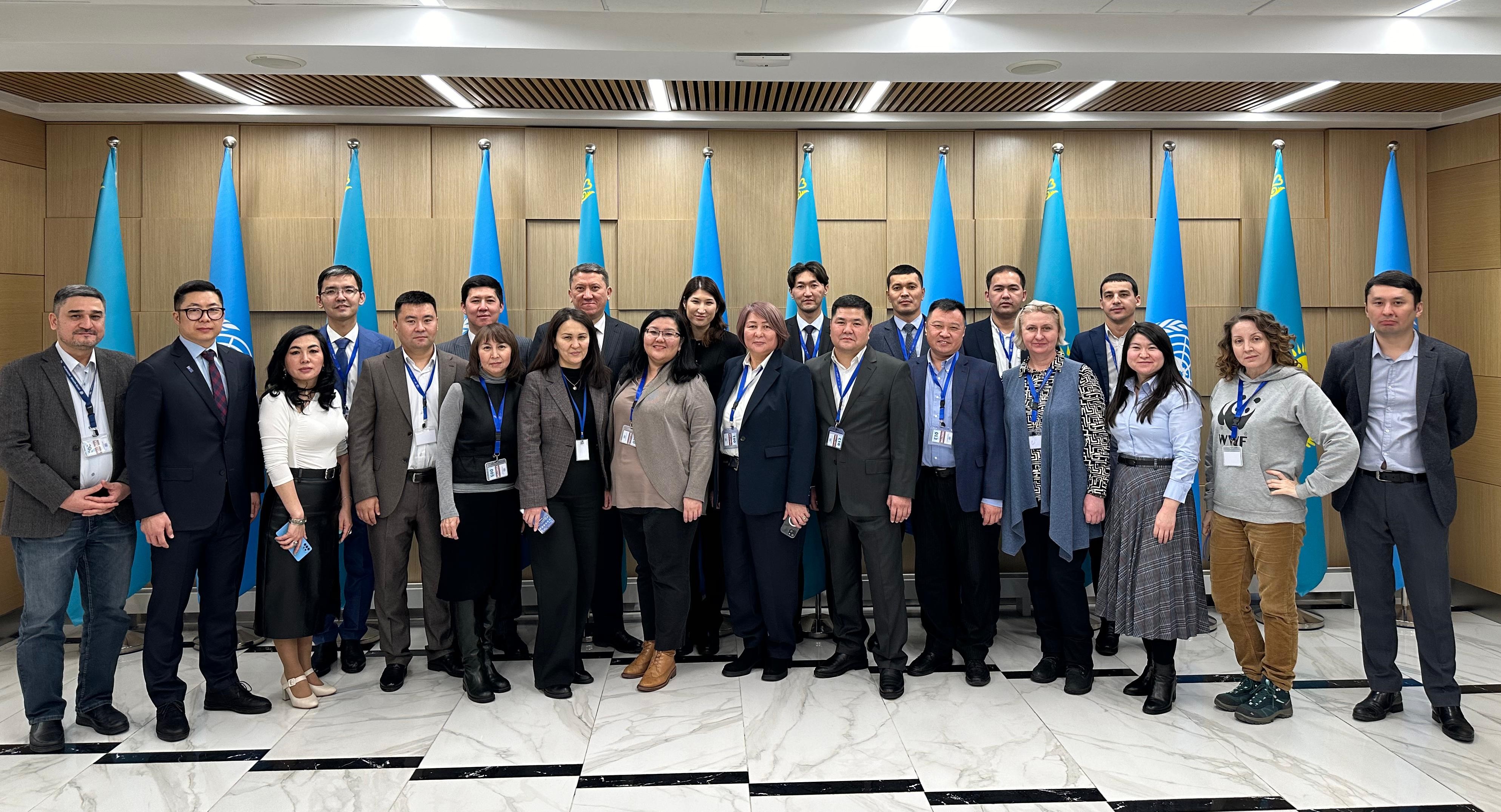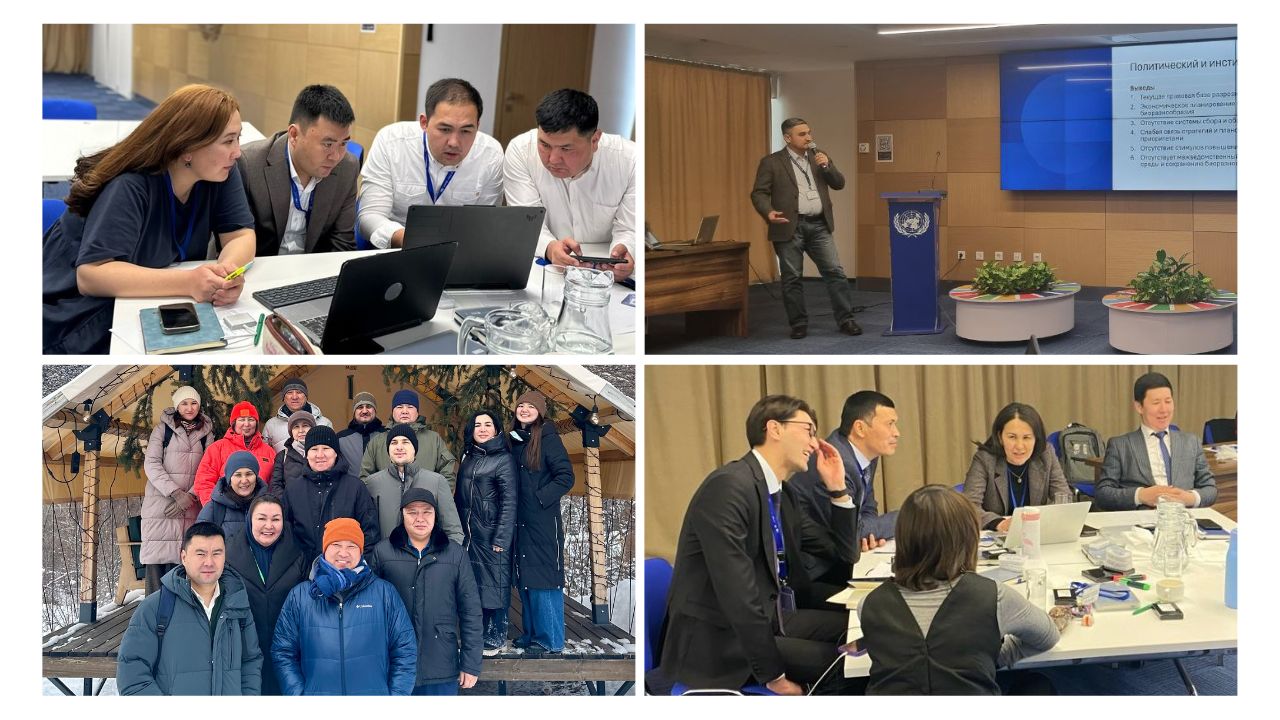
25 environmental finance experts, including government officials, technical specialists and international experts from Kazakhstan, Kyrgyzstan and Uzbekistan came together at a sub-regional meeting in Almaty in February 2024 to discuss the Global Biodiversity Expenditure (GLOBE) Taxonomy. Currently, there is an abundance of taxonomies whose main purpose is to screen investments based on defined national or global standards that guide nature finance, climate finance or the larger milieu of SDG finance. GLOBE, meanwhile, focuses on public sector biodiversity, expenditures which comprise more than 60% of global biodiversity spending.
BIOFIN recognizes the usefulness of taxonomies when conducting expenditure analysis to classify, tag, and estimate biodiversity expenditure. GLOBE aims to improve the BIOFIN process by providing a detailed listing of biodiversity expenditure, aligning it with global and national frameworks and establishing standards for appropriate attribution. Biodiversity expenditure review is one of the main steps of the BIOFIN methodology. It plays a crucial role in understanding and analyzing the various investments made towards preserving our natural ecosystems.
The GLOBE taxonomy includes nine primary biodiversity expenditure categories, as well as details on second and third-level spending, specific examples of spending, and biodiversity attribution factors. Its main objective is to streamline the allocation of budget expenditure on biodiversity and provide guidance on how to accurately estimate and categorize this expenditure in the context of public financing.
The experts actively contributed to the refinement of the GLOBE taxonomy in four main groups: Biodiversity Awareness and Knowledge, Biodiversity Planning and Financing, Protected Areas and Other Conservation Measures, and Sustainable Use. Discussions centered on biodiversity expenditure and the determination of attribution rates within each group. Standard definitions of “biodiversity expenditures” are very critical, especially for studies and finance solutions being implemented in the region including analyzing and repurposing harmful subsidies, financial sector review, budget planning, and implementing results-based budgeting.

The meeting participants noted that having sufficient information on expenditures is critical in determining biodiversity attribution rates. And being experts in fields, individual opinions can be subjective, and having discussions on attribution rates is an important step in developing a unified taxonomy. Meruyert Sarsembayeva, BIOFIN National Coordinator, noted that the development of the GLOBE taxonomy is an important work for BIOFIN countries, which will facilitate the preparation of biodiversity expenditure reviews.
At the end of the meeting, participants had the opportunity to visit the Ile-Alatau State Nature Park to gain insights into Kazakhstan's experience in working with the private sector on conservation activities. In particular, the construction of the park's new visitor center as part of a public-private partnership is proof of the successful development of ecological infrastructure and the promotion of ecotourism.
Categories
Archives
- April 2024 (5)
- March 2024 (3)
- February 2024 (6)
- January 2024 (3)
- December 2023 (1)
- November 2023 (7)
- October 2023 (5)
- September 2023 (2)
- August 2023 (3)
- July 2023 (1)